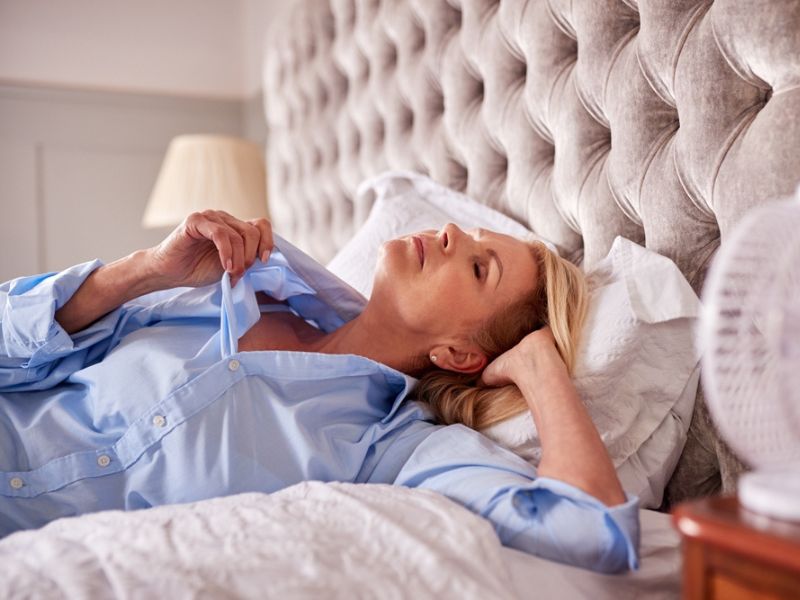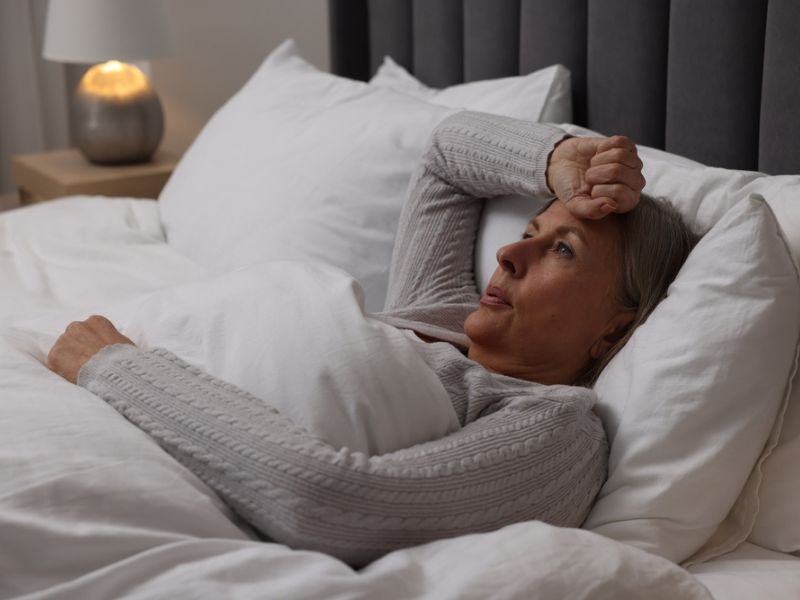An intense sweat session is one of the most disruptive things in your sleep. Despite a comfortable mattress, a cozy comforter, and pleasant dreams, waking up soaked in the morning can be pretty uncomfortable. It can be a little alarming if it happens frequently.
What Causes Sleep Sweating?
The temperature of your bedroom or the material of your pajamas is generally to blame for night sweats. The temperature fluctuates while you sleep.

Image Credit: Shutterstock/Monkey Business Images
Peter Polos, a sleep medicine specialist and expert, said, “The body’s core temperature is typically between 97-99 degrees Fahrenheit, but it decreases during the nocturnal sleep phase, usually by 1.5-2 degrees.”
In addition, you should keep in mind the possibility of experiencing hot flashes rather than night sweats. There is a warm sensation, lasting from three to four minutes to 20 or 30 minutes, followed by sweating. Women often describe hot flashes at night as night sweats, but they differ.
If you experience night sweats consistently over two to three months, you might want to consult your doctor, who can identify the cause. Check out the most common causes of night sweats and how to treat them before you panic.
Nightmares Are Ruining Your Sleep
Your doctor can help you if you’re experiencing nightmares that seem to be ongoing. Most likely, this is the reason for the sweats. Dr. Shah says anything that causes “a sympathetic surge” can cause sweating.

Image Credit: Shutterstock/New Africa
You’re Feeling Anxious
Excessive sweating is a sign of stress, which can follow you to bed. Caroline Cederquist, MD, a bariatric physician, said, “Increased sweating can be a physical symptom of anxiety, which is caused by an activated fight-or-flight response.”
Before bedtime, you can reduce some of the stress you feel by meditating, limiting screen time, and setting aside time to wind down.
Exercising Close To Bedtime Is A Bad Idea
Dr. Polos explains that exercising close to bedtime increases metabolic rate. If you are already a hot sleeper, this can result in warmer evenings. Dr. Polos recommends, “Try to squeeze your workout in about two hours before you plan to go to bed.”